Wednesday Feb 25, 2026
Wednesday Feb 25, 2026
Monday, 27 April 2020 00:00 - - {{hitsCtrl.values.hits}}
By Medha de Alwis
The novel coronavirus (COVID-19) pandemic has almost crippled the world with its deadliness. Nearly three million cases and growing in 210 countries, over 200,000 fatalities, borders closed, and economies and communities being shut, the COVID-19 impact is far-reaching.
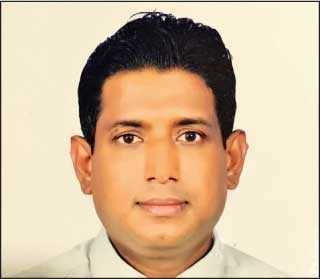 |
| Dr. Roshan Liyanage |
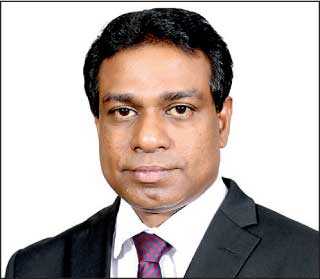 |
| Dr. Dilhar Samaraweera |
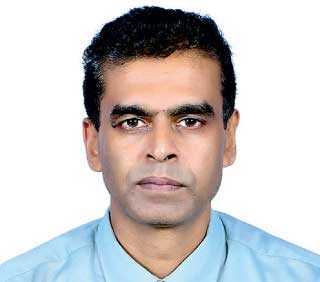 |
| Dr. Dammika Waidyanayake |
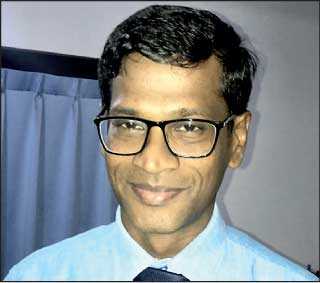 |
| Dr. Lakmal Vithanage |
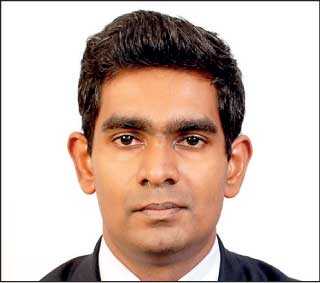 |
| Dr. Nirodha de Silva
|
With two months nearing since the first case reported, Sri Lanka remains at crossroads with regards to its own battle with COVID-19.
At the time of writing, the number of COVID-19 confirmed cases was over 460, of which 325 are active whilst seven had died.
The pandemic locally has been contained largely due to extensive mitigation measures including curfew for over a month. Early success prompted some to term it as a victory. However, concerns have risen given the rapid jump in positive cases since last week. The last 100 cases came in just four days whereas the first 100 took 57 days.
As the nationwide battle continues to control the spread and globally for a vaccine, the Daily FT spoke to several consultant physicians serving countrywide to find out what were the early learnings from the COVID-19 and how Sri Lanka can face the future challenge better.
Some of the issues that were addressed include mitigation measures, testing, resilience, capacity and challenges of the healthcare system and the importance of being ready to a spike in cases.
Colombo South General Hospital Consultant Physician Dr. Dilhar Samaraweera admitted that Sri Lanka was not ready for the COVID-19 pandemic just as much as any other country.
“This is a new phenomenon. And we learn as we go,” said Dr. Samaraweera. He also commended the imposition of the strict curfew earlier on that made it manageable for the health sector. “The curfew and resultant social distancing minimised a probable early rapid spread. A heavy patient influx would have posed a greater challenge for the healthcare system and personnel,” he added.
However, he was of the opinion that the Sri Lankan health sector should get ready for the next advanced stage of the pandemic or its persistence for many more months. “We cannot take things for granted. Situation may get better; or worse. It is in our best interest that we get ready too,” Dr. Samaraweera added.
Done it right and done it wrong
Thambuttegama Base Hospital Consultant Physician Dr. Dammika Waidyanayake shared his experience in how his hospital handled suspected COVID-19 patients. “All patients are given a form to fill at the first point of contact itself. This form helps us to identify whether the patient concerned has any background and a contact history to have been infected with the virus,” he explained.
An information gathering system of this kind is in operation in most hospitals and considered as one of the best practices done so far to contain the virus.
Dr. Waidyanayake too welcomed the partial shutdown of the country. “Curfew is an excellent strategy,” he said adding that the efficacy would have not been as successful if not for the imposition of the curfew.
However, he acknowledges that the country cannot be shutdown indefinitely. “The country has to move forward economically. Therefore, the curfew cannot be there forever. It is not practical. The curfew can be lifted smoothly and in stages so that there would not be a rapid increase in the COVID-19 cases. The public too has to be aware. People need to learn to safeguard themselves as well as the others from the virus, may it be with the curfew or without.”
Dr. Waidyanayake stated that many patients his hospital took care of said they went through a self-quarantine process in their own homes. However, he expressed his concern that though this is a great way to deal with the situation, there is no way to measure the reliability of either the information provided by the patients or the exact manner with regard to safety measures that they adopted during home quarantine.
Gaps in the Sri Lankan medical system
The role of the medical and health workers and professionals has been widely commended in the fight against COVID-19. Lack of resources and capacity was a key factor in the Government’s decision to step up social distancing thereby control the spread.
All the Consultant Physicians the Daily FT spoke to were appreciative of the effort that the Government had taken and were understanding of the context that this situation arose with no warning to prepare, hence certain gaps cannot be avoided.
Sri Lanka also had to deal with getting the required number of personal protection equipment (PPE) and masks. Another challenge was as to whether the said protective equipment comply with the international standards; the other was how satisfactory the healthcare professionals could be with patient compliance when these safety measures are used.
District General Hospital Ampara Consultant Physician Dr. Roshan Liyanage said that this is the time to get ready for the next stage.
“There is no community wide spread of the virus at this moment, but it is high time that we further strengthen ourselves in resilience. We have a remarkable surveillance system and thanks to that contact tracing has not been a problem,” he said.
“It does not go waste to build up on medical infrastructure to be fully equipped even for a community spread. Not that we can take it easy and let a community spread happen, but though we have adequate facilities currently, we can do in expanding our isolation units in the hospitals, quarantine centres, Intensive care units as get protective equipment that comply with the proper international standard,” Dr. Liyanage emphasised.
Views from the consultant physicians confirm the need for further investment and expansion of healthcare system to cope with any future pandemic such as COVID-19.
Message to the public
All the consultant physicians emphasised that more and more testing is the only way out just now though there have been complaints from the public that there was lack of testing opportunities whilst private hospitals network wasn’t fully and willingly harnessed.
“Do not wait for a vaccine or a medicine. It will take time,” District General Hospital Polonnaruwa Consultant Physician Dr. Nirodha de Silva cautioned. The Polonnaruwa District had several positive cases of COVID-19.
“Medical infrastructure can be developed, but it cannot happen overnight when the entire world is in a lockdown. Even if more ICUs (Intensive Care Units) are built, they need specially trained ICU staff who cannot be trained overnight. Hence the best cure is prevention,” pointed out Dr. de Silva.
Lessons beyond shores
When inquired about the lessons learnt from other countries, and as to which countries have handled the situation better than Sri Lanka, the physicians were of the opinion that each country has a different situation with regard to the way the virus was spread, population, climate, awareness and discipline of the public and health care facilities; so that a comparison is not practical.
General Hospital Hambantota Consultant Physician Dr. Lakmal Vithanage noted that given the fact it was a new situation for China too, with no other example in the world to look at, the manner they locked down the infected province immediately, imposing social distancing was commendable.
“China was quick to build up the necessary infrastructure and deploy healthcare workers to take charge of the situation. That may be one reason that they could control the virus within a short phase,” said the concerned physician who is of the opinion that lifting the curfew for economy to function is of paramount importance, provided it is done at the correct time in the correct way.
(The writer is a freelance lawyer, mentor and journalist. She can be contacted at [email protected].)